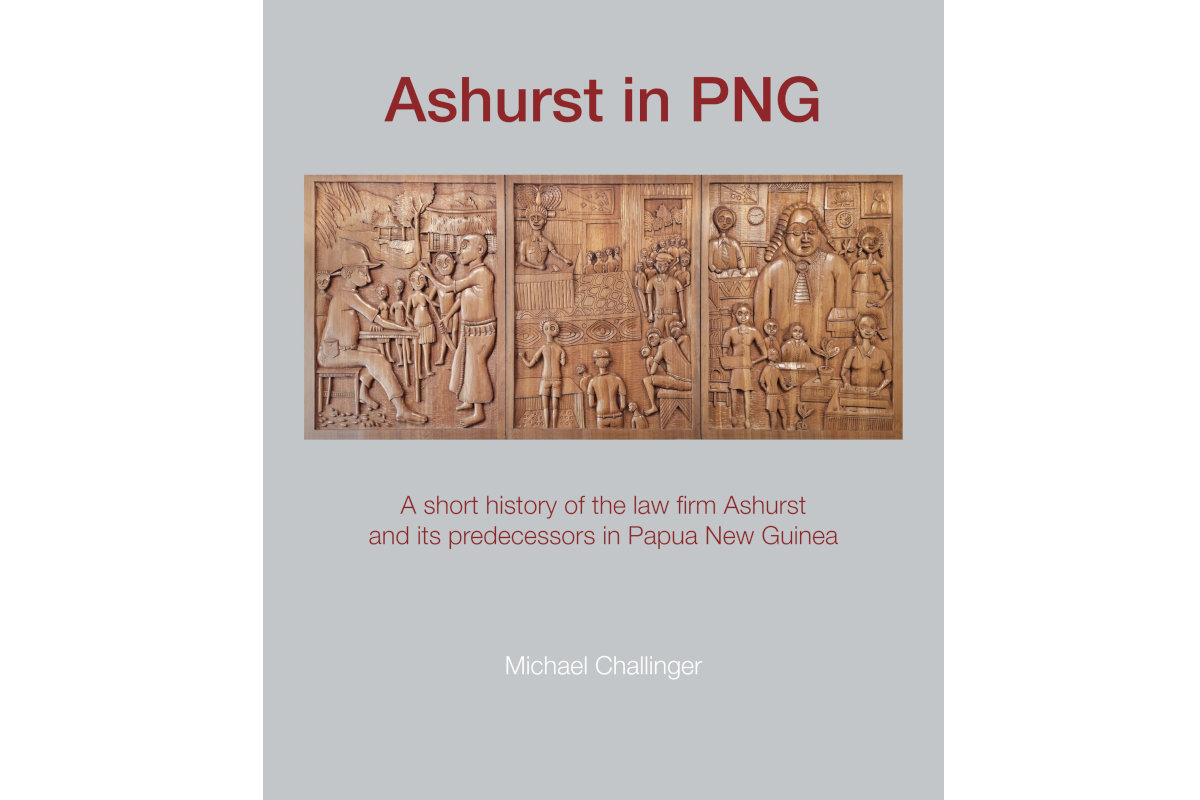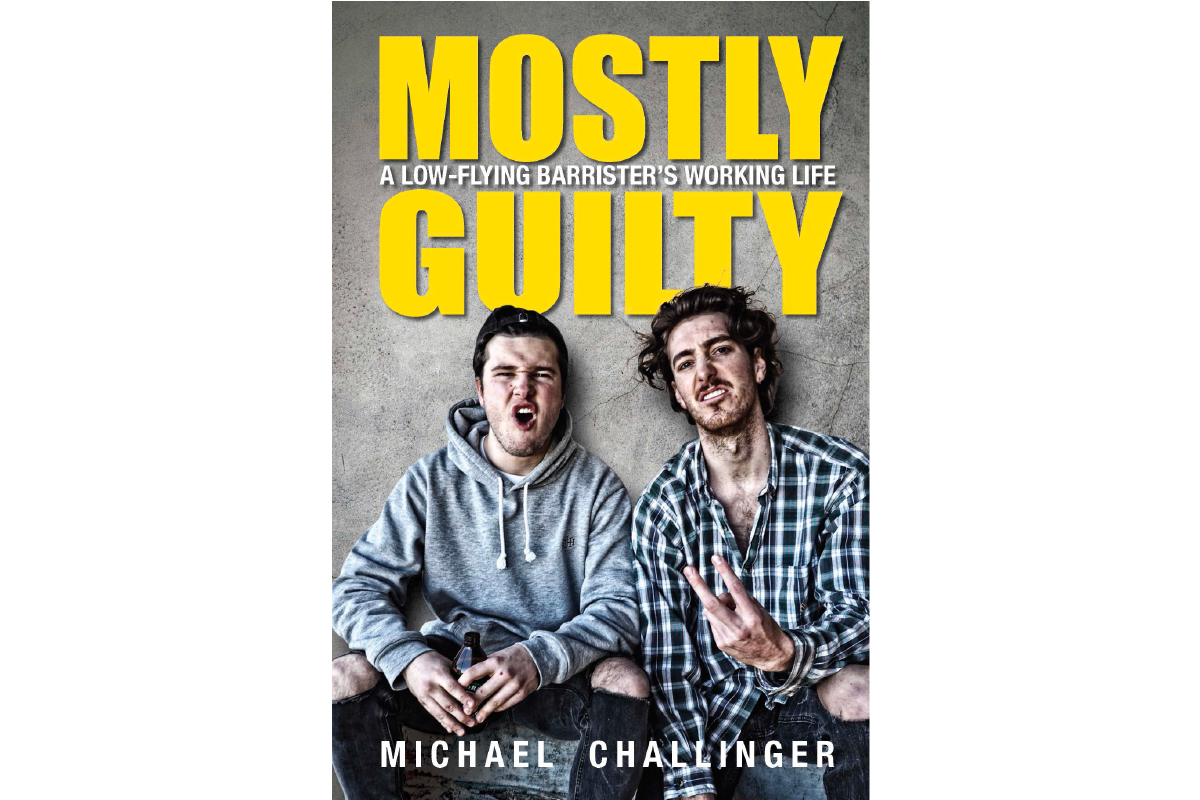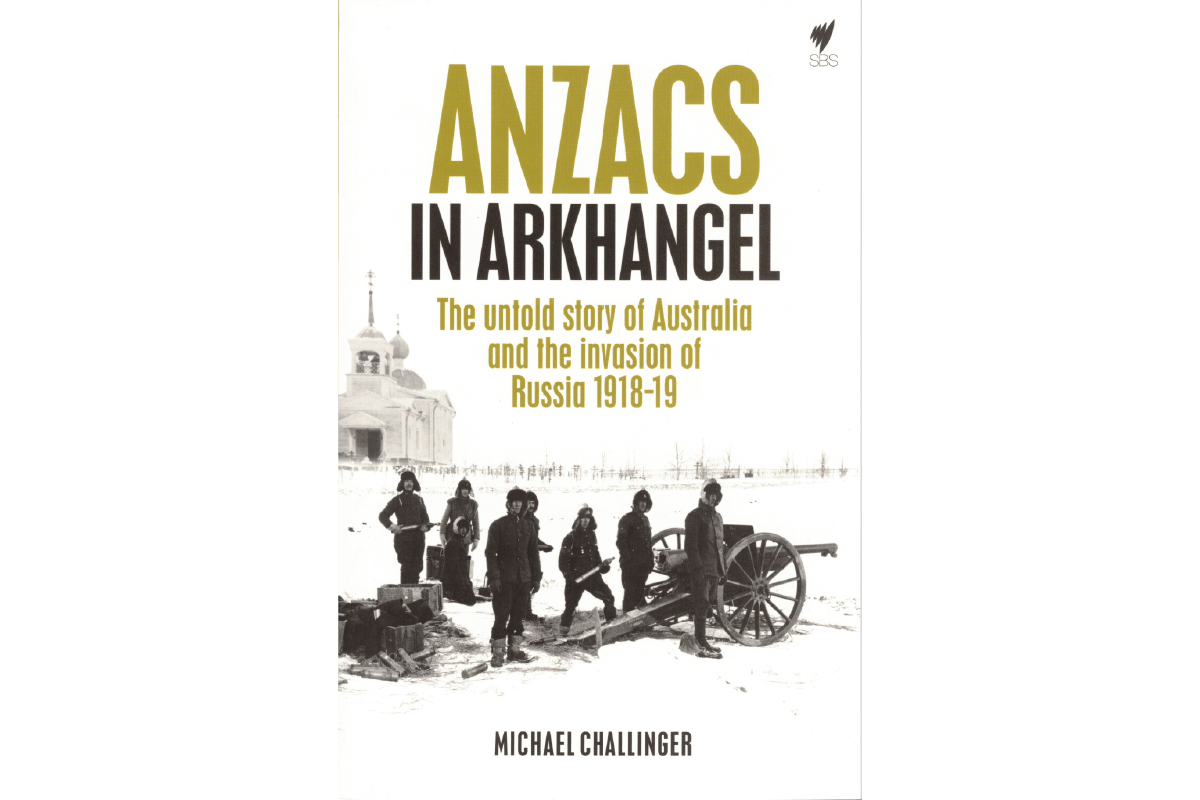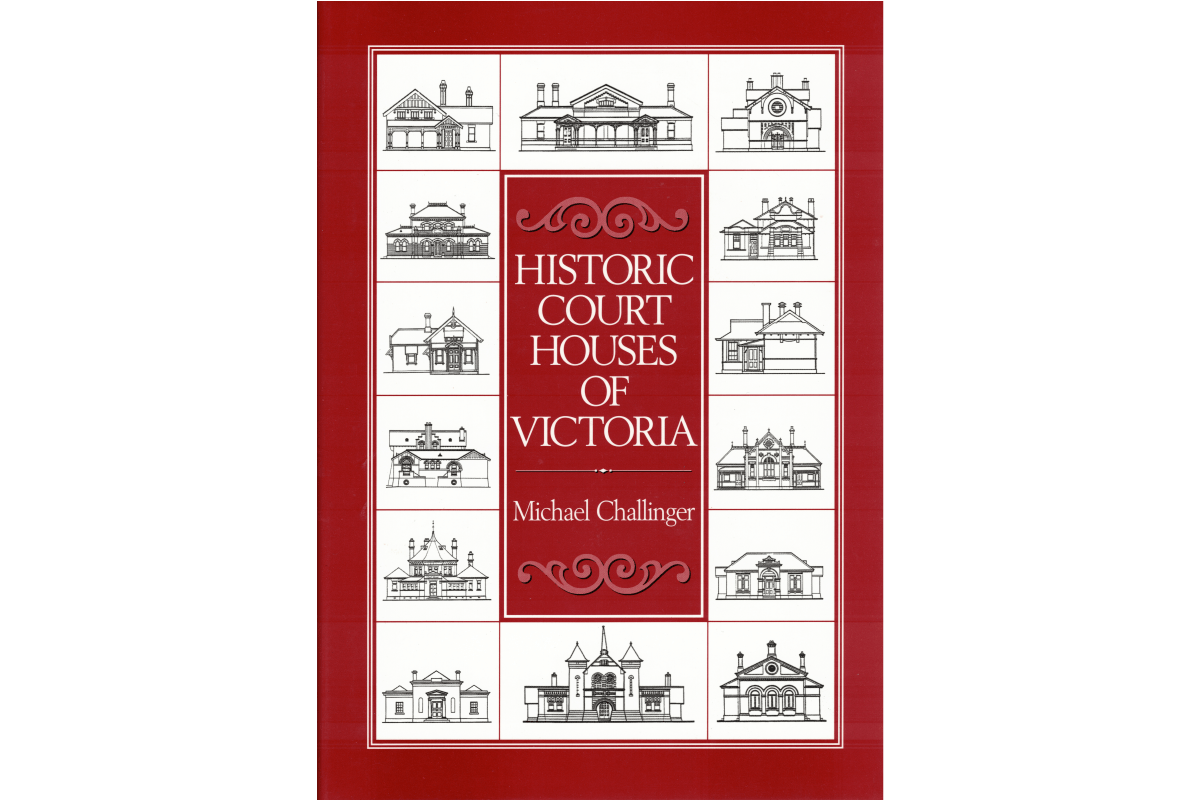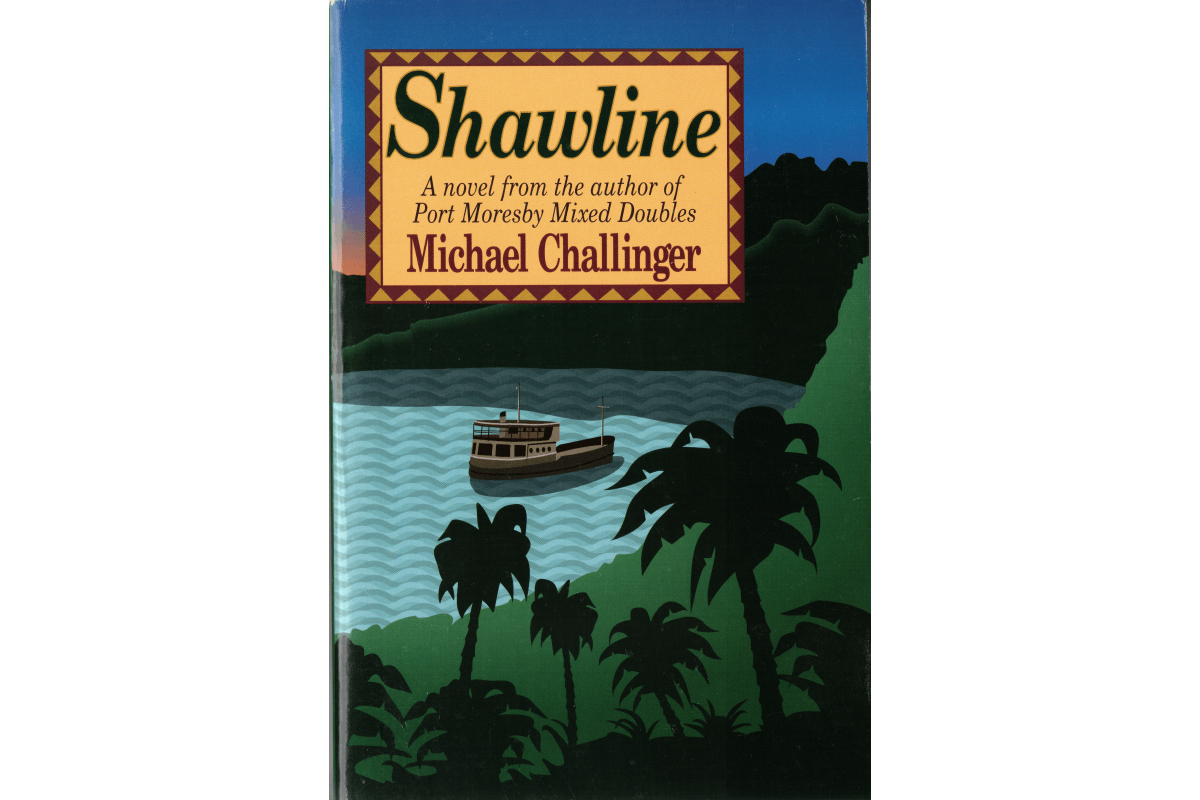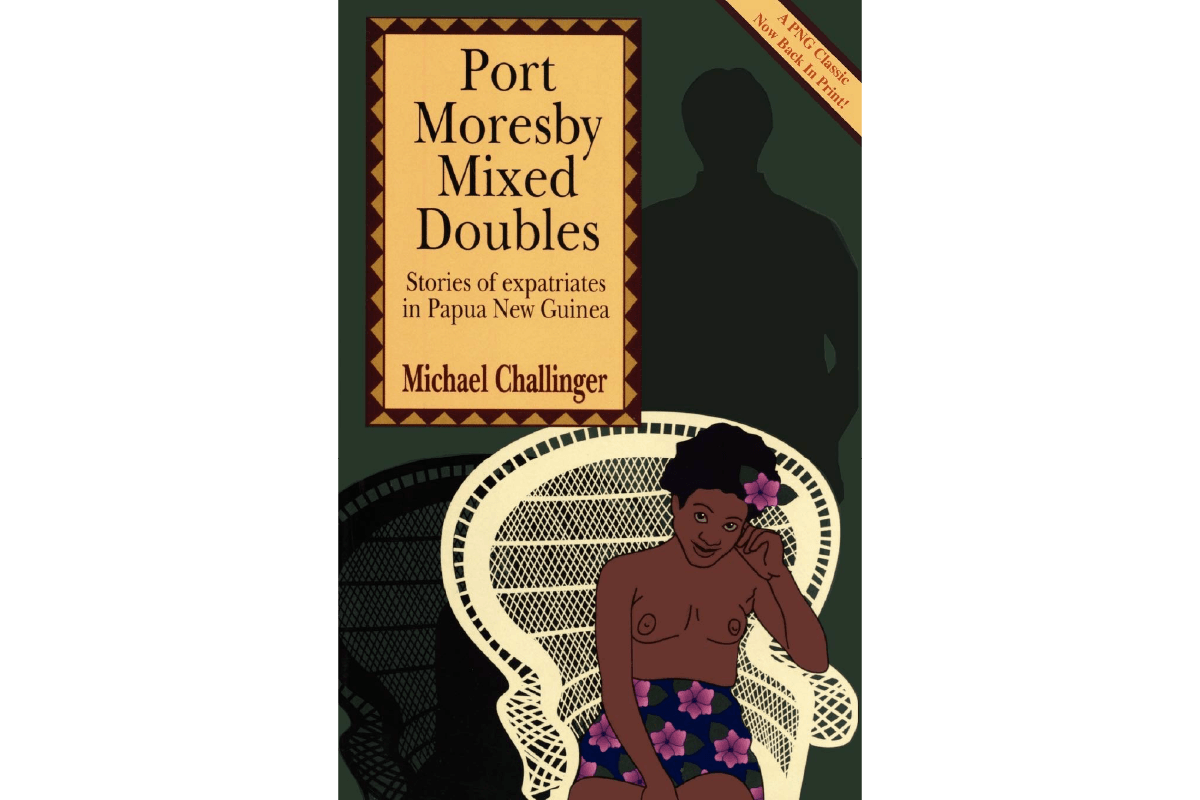Ashurst in PNG: A short history of the law firm Ashurst and its predecessors in Papua New Guinea
Mostly Guilty: A low-flying barrister’s working life
Mostly Guilty deals with the workings of the lower rungs of the Australian legal system. It’s about the down-to-earth cases that happen daily in Magistrates’ Courts. It does so through the experiences and anecdotes of a low-flying criminal barrister. While the cases are from Victoria, the book makes reference to other states and has relevance and interest Australia-wide. The style is light, punchy and informal, with lots of direct speech and many funny yarns. Some of the book is tongue-in-cheek (and even politically incorrect) but it also makes serious points throughout. It’s entertaining as well as informative. Most legal memoirs are by big-shot advocates or retired judges. Mostly Guilty is different, and doesn’t take itself too seriously.
Very Highly Recommended!
It is often funny. Laugh-out-loud in surprised disbelief funny. But never cheap laughs. Not at anyone’s expense — or no more than is deserved when the facts are made plain.
Challinger’s tone as author, and character. . . is often sympathetic, wry, and wise . . . His compassion throughout, for his hapless (and sometimes not so hapless) clients, and their suffering victims, is clear on every page — balanced with humour, and told simply and powerfully.
Very highly recommended!
Compulsory Reading
Challinger writes entirely without pretension as an advocate of long experience. He enlightens as he entertains and has something important to say on many aspects of the law. The book is an easy read and, in parts, very funny.
It’s a terrific read by a lawyer of his life at the low end of the law . . . and his innate sense of humour and skill as a wordsmith lend credibility and readability as a serious social commentary.
The book should be compulsory reading for law students at universities and colleges of law.
Mostly Guilty
The book is a collection of anecdotes of legal practice over the past 40 years or so.
I’m genuinely surprised and impressed that he can remember in detail so many matters.
Barristers and solicitors of all persuasions will find this so familiar, the worn carpet, the clients and benches, so it will appeal to those and also to our friends and neighbours.
Mostly Guilty
The first thing to say is that Mostly Guilty is a terrific read … The book is witty; indeed, in places, it’s laugh-out-loud funny. The chapters are short and the style punchy. But among the laughs it raises serious concerns and offers sensible suggestions about drugs, alcohol and mental health and gambling addiction … One of my colleagues suggested the book should be compulsory reading for law students or young people contemplating a career in the law. I agree entirely.
Anzacs in Arkhangel: The untold story of Australia and the invasion of Russia 1918-19
In November 1918, as World War One was coming to a close and soldiers were returning home, a small group of Australian men signed up for more fighting. Yet this time, the enemy was Russian Bolsheviks instead of Germans, and the frontline was the wild and frozen wastelands of far north Russia. With humor and an eye for irony, Michael Challinger tells the story of how this group of 150 Aussies was seconded to help protect the British from a rear guard attack from northern Russia. Stationed in the small town of Arkhangel, the soldiers became embroiled in what was to become the Russian revolution, as they battled not only the Bolsheviks but also extreme cold, hostility from locals, and a 25-kilometer front line. Two of these Australians soldiers went on to win Victoria Crosses and are perhaps our most neglected war heroes. Anzacs in Arkhangel brings Russian history into focus and reveals how easily the First World War could have been lost. It is a fascinating account of part of the Anzac legend that is not so much forgotten as never known.
This tale is fascinating on so many levels. It’s a little-known story of 150 Australians who fought the Bolsheviks in far north Russia at the tail end of World War I and after the Armistice . . .
Verdict: riveting.
Challinger’s book adds a new dimension for Australians interested in military and political history.
A fascinating book . . . Superbly researched in Lonndon and Canberra, well-written and enlivened by photographs virtually nobody will have seen.
This is a fascinating history of a little-known aspect of the Australian experience of the aftermath of World War I.
This is an informative and lively account of British and Allied military involvement in northern Russia in 1918-19 . . . Challinger details who the Australians were, the tough campaigns they fought and includes new information on the use of gas by the Allies . . .
The book is written with the exciting edge of an adventure story. The many photographs throughout,
together with a lively text, bring the Anzac presence in Arkhangel to light.
FEW today know that Australians fought in northern Russia from 1918 to 1919; few Australians in those days knew either. The first soldiers arrived towards the end of World WarI after Britain invaded its supposed ally to secure movement of troops and supplies. Nine Australians joined the secret mission. After Britain decided to withdraw, from Russia, about 150 more Australians were among the British troops that arrived in June 1919, the month the armistice was signed. Churchill had proposed a ‘‘relief force’’ that would ostensibly aid in the withdrawal but which was also to fight the Bolsheviks.
The Australian role in the North Russian intervention is known to historians, but is lost to the awareness of the broader public, and even to the families of the men involved . . .
Michael Challinger has told this remarkable story for a new generation . . .
The author and Russophile Michael Challinger explores an action that was virtually unknown to Australia at the time.
If it is your pleasure to read a great deal of detail of this bizarre enterprise, well researched and written in engaging prose with individual characters to the fore, this is the book for you.
A formidable piece of research from a man who has clearly explored every possibility and documented every fact behind this story.
Challinger’s account livens up a strange and colourful story.
Forgotten History
Great story, very well written on history that should not be forgotten.
Very informative of events that happened so long ago. It took you to the locations.
Remembering ANZACS in the Rusian Civil War
Many thanks to the author! Good read!
Historic Court Houses of Victoria
Many of Victoria’s court houses are historically significant. Some are architectural gems and all have local interest. This book details every one of Victoria’s remaining pre-1945 court houses, providing a photograph and description of each building and accounts of some of the cases heard in them.
It was not only murderers and criminals who passed through these buildings. Ordinary Australians, too, were sentenced in them. They were jailed for flying a red flag or riding a railway on a wagon. They were fined for ironing a shirt or rescuing a pig – for overcharging on mutton shanks or swimming in the Yarra on a Sunday.
As the author writes, “Each has been the stage where a thousand human dramas have been played out and where some hint can be found of lives otherwise unrecorded.”
From the bizarre to the tragic, the cases afford a telling glimpse into the law and social values of the past. A fascinating book where history, law and architecture meet.
Barrister Michael Challinger has given voice to the courts of Victoria in this fine book . . . In describing every one of Victoria’s remaining pre-1945 court houses, with photos and details of each building, Challinger has performed an excellent service.
Some books sneak up on you and enmesh your attention when you suspected you were about to enter the boredom zone. Michael Challinger’s Historic Court Houses of Victoria is such a book . . . This fine book deserves to be on the shelf next to your most thumbed volumes.
Historic Court Houses of Victoria doesn’t stop at the great court doors. Challinger has also assembled a remarkable collection of court and law-related cases and incidents that accompany his photographs of the court houses. These historical, often hysterical and, sometimes horrible accounts enhance the book’s study of architectural developments . . . Challinger says of the court houses’ individual histories: ‘Each of them has been the stage where a thousand minor human dramas have been played out and where something can be found of lives otherwise unrecorded’.
Where fascination, law, architecture and anecdote meet, Michael Challinger is to be congratulated for preserving a most important part of the state’s absorbing history.
Challinger’s lively tour ranges from the magnificence of the Supreme Court of Victoria to the most modest brick or weatherboard court buildings throughout the State. His strategy of letting small stories create the big picture succeeds marvellously.
This is not a book of photographs, but a well-researched account of those courthouses which first administered justice in the colony and then later in the state . . . In each entry Michael Challinger provides a history of the court house and an anecdote of some event that occurred . . . This is a thoroughly enjoyable book, well-written and indexed, bound and presented. It will have an attraction to a wide range of people, not only for those who are concerned with the law, but also for those who are interested in the historical development of Victoria and its towns.
Shawline
Shawline Shipping is in deep water. It owes money everywhere and has enemies in high places. Wilbur Shaw, the company’s raffish and unscrupulous founder, enlists help wherever he can find it: a thuggish black seaman, an uncouth right-hand man, an inexperienced young lawyer whose moral scruples are tested as rigorously as his legal skills. Wilbur thinks Shawline needs an injection of Asian capital and management expertise. He gets both in a manner of speaking. From Singapore — or is it Taiwan? — comes the unflagging optimist Danny Wong. He offers Shawline a way out. Who knows, it may actually work.
Challinger can write delicious, disturbing satire when he wants to…
Life without heroes
Very funny . . . Challinger’s staff is satire and, with the expat community in Port Moresby as his target . . . he hits the mark deftly and skilfully.
. . . the lively panorama of rogues and naifs dances entertainingly across the pages towards the satisfying disastrous ending.
This was a really satisfying book on a number of levels. Exotic locale – Aussie expats in PNG. Humorous. Well-written. Perfect pitch, excellent dialogue. Great characters. Finally, and most importantly, tightly written and well plotted. A really, really good read that I didn’t want to end.
Reminded me of the best of Evelyn Waugh . . .
Port Moresby Mixed Doubles: Stories of Expatriates in Papua New Guinea
Much has changed in Papua New Guinea in the years following Independence, but much as remained the same. White expatriates still form a rich, privileged but impermanent minority. Few of them have a long-term commitment to the country. The local inhabitants are often relegated to roles as domestic servants, subordinates at work, or as partners in brief sexual flings. Among the expatriates themselves, relations are complicated by boredom, jealousy and self-importance. These highly readable stories range from the tragic to the ribald. They reflect expatriate life in urban PNG and illustrate some of its major preoccupations: insecurity, money, drink, sex. Originally published in 1992, this edition includes a new preface by the author.
Colonial crassness in Papua New Guinea
Reading this lively collection of stories about expatriates, mainly Australian, in Port Moresby is like a night of too much wine and too much smoking. It is a guiltily pleasant experience with a somewhat bitter after-taste.
The expatriates still dream of Empire, and look on independent Papua New Guinea as a nightmare with some amiable special effects,…
Insights, icons and images of Pacific pessimism
. . . When we move closer to home, with Michael Challinger’s Port Moresby Mixed Doubles, there is even more to be concerned about, for almost every story concerns the lack of care and decency exercised by Australian expatriates in Papua New Guinea.
Challinger describes the worst kind of colonialism, where every native (or national) woman is considered to be a sexual chattel and every male national is to be abused and humiliated at whim….
Telling tales of bawd abroad
Just what do high-profile Australians – including business leaders and diplomats – get up to when they are away from friends and family?….
Cheating. Lying, Fornicating, Drinking, etc.
Michael Challinger’s eighteen stories about contemporary adventuring (in sex, business and religion) in Port Moresby and other parts of Papua New Guinea, are ‘highly readable’ and ‘entertaining’. The cover blurb says so. And it’s pretty well correct…
Barrister’s saucy book stirs up PNG Aussies
Australia Day parties in Papua New Guinea will be abuzz today with talk about a newly released book by an Australian barrister.
Illicit sex romps, alcoholic binges, bar-room brawls and violent tantrums by Papua New Guinean mistresses are a few of the more notable of the 18 stories in Port Moresby Mixed Doubles by Michael Challinger….

